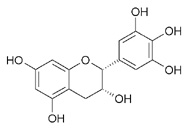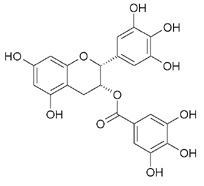We use cookies to make your experience better. To comply with the new e-Privacy directive, we need to ask for your consent to set the cookies. Learn more.
Tea and health
Tea and health
If there is some truth to the
Legend
about the discovery of the tea plant, then maybe
that tea originally served as a medicinal plant. Still in the Tang period (7th century),
when tea gradually began to establish itself as a popular drink, it was still
listed as a medicinal plant in the official compendium of remedies: tea,
a bitter plant. Sweet and bitter in taste. Weak in quality
cold, non-toxic. Acts against intestinal fistula, facilitates urination, loosens cough mucus,
quenches thirst, makes you sleepless. Helps with digestion. Best served with cornelian cherries, leek and ginger.
But the poet Lu Tong (795 - 835) brought the healing
and invigorating effects of tea:
... The first bowl nets my throat and lips; the second bowl lifts my
mood; the third bowl cleans my bowels, leaving only the books
(which I have read); the fourth bowl makes me sweat easily, everything bad
disappears from the pores; the fifth bowl makes me feel relieved;
the sixth bowl gives me connection with immortals. The seventh bowl
I am not allowed to drink at all, I can already feel the cool wind in my sleeve, which
makes me fly...
Lu Tong: a famous poet and passionate tea enthusiast in
of the Tang Dynasty. He wrote this poem as a letter of thanks to a friend,
who sent him a sample of the fresh tea harvest. His rather short life
had little to do with drinking tea. He became involved in a court intrigue and
was sentenced to death.
Scientific research on the effects of tea on health
 In recent years, tea drinking has experienced a small boom in Germany,
which certainly also has to do with the fact that the tea, but especially the green tea
is ascribed a multitude of positive influences on health. The on
are the most cited effects:
In recent years, tea drinking has experienced a small boom in Germany,
which certainly also has to do with the fact that the tea, but especially the green tea
is ascribed a multitude of positive influences on health. The on
are the most cited effects:
- cancer prevention
- prevention of cardiovascular diseases
- lowering of the blood sugar level
- antibacterial effects
- prevention of caries
- and anti-aging.
In short: tea seems to be a panacea.
However, if you look at the scientific publications on the subject of "tea and health"
one gets a much more differentiated picture. First of all
the published results must be divided between laboratory tests and
and the so-called epidemiological studies.
In a laboratory test
ingredients
are usually isolated from tea leaves.
Causes and effects are investigated by experiments with animals or in cell culture.
Today, there are indeed countless professional publications that report on any positive effect of tea.
These publications are also busily quoted by all the lifestyle magazines, TV programmes or tea associations.
The problem with laboratory tests, however, is that the dose of
ingredients
used in the experiments is often
so high that it has nothing to do with the quantities that can be taken in a normal tea consumption.
The significance of these tests is therefore often very doubtful.
An epidemiological study usually involves a group of
tea drinkers compared with a group of non-tea drinkers. In doing so, one tries to identify differences
in the incidence of certain diseases, such as cancer, cardiovascular diseases,
and much more, between the two groups. Also in the epidemiological studies
there are many pitfalls in the interpretation of the results. For example
in some studies (generally speaking, not specifically the studies with tea drinkers
related) it is not always clear whether the behaviour under investigation is related to the observed
difference or vice versa. Moreover, one cannot always assume that this is the case,
that a causal link between the behaviour under investigation and the observed
difference exists. After all, a person's lifestyle is so complex that you
must exclude many disturbing factors in order to draw a firm conclusion from
to be able to draw such studies.
 Maybe one last warning on the subject of "tea and health": the
Tea is primarily a stimulant and not a medicine. Even though tea has many positive
has properties, it cannot replace medical treatment. The following
short overview is intended to illustrate how difficult it is to find the health-promoting
to scientifically record the effects of tea.
Maybe one last warning on the subject of "tea and health": the
Tea is primarily a stimulant and not a medicine. Even though tea has many positive
has properties, it cannot replace medical treatment. The following
short overview is intended to illustrate how difficult it is to find the health-promoting
to scientifically record the effects of tea.
Prevention of cancer
In animal experiments, tea extracts (from both black and green tea)
has been shown to have strong inhibitory effects on the development of tumours in almost all organs.
However, epidemiological studies with human volunteers do not have a clear picture
the antitumour effect of the tea. Most studies have shown a more
or less strong inverse correlation between tea consumption and cancer risk was found,
i.e. the risk of cancer decreases with increasing tea consumption. But there are also studies,
who have not found a positive effect of tea consumption on cancer prevention.
The scientists have not yet been able to fully understand the difference. Attempts to explain
there are many. One very valid argument is probably that the animal experiments
were carried out with much higher doses of tea extracts than a human being
could ever take through his tea consumption. Others argue that
Studies that have shown a protective effect carried out in China and Japan
where people drink mainly green tea. Studies with negative results
were carried out in Europe, where black tea is the predominant beverage. In comparison
to green tea, black tea has far less catechins (
 EC,
EC,

 ECG,
ECG,

 EGC,
EGC,

 EGCG
EGCG
 ) due to fermentation.
) due to fermentation.
 EC,
EC,

 ECG,
ECG,

 EGC,
EGC,

 EGCG
EGCG

Als relativ sicher gilt der Befund, dass der Teekonsum das Tumorrisiko im Verdauungstrakt
senkt. Das hat damit zu tun, dass die Catechine recht schlecht durch den Verdauungstrakt
aufgenommen werden und deshalb lange dort bleiben. Dadurch erreichen sie dort so
hohe Konzentrationen, dass sie tatsächlich ihre Antitumor-Wirkung voll entfalten
können.
Prevention of caries
Before toothpaste came to China, gargling with a cup of tea after a meal was considered a good way to promote oral hygiene.
Indeed, the preventive effects of tea against tooth decay have been proven.
The protection against tooth decay provided by drinking tea is based on two ingredients in tea: fluorine and catechins.
Nowadays, there is no need to say a word about fluorine, every toothpaste on
The market boasts that it contains a particularly effective fluorine compound.
So the Catechine remains. They act in many ways against the bacteria in the mouth that cause tooth decay.
For example, the catechins have both a bacteriostatic and a bactericidal effect, which means that they can not only inhibit the growth of the bacteria,
they can even kill the bacteria directly.
What is particularly interesting about these antibiotic-like effects of the catechins is that the amount of catechins dissolved in tea is sufficient to have their full effect.
Prevention of cardiovascular diseases
Several epidemiological studies have found a positive relationship between tea consumption and a reduced incidence of cardiovascular disease.
Scientists still do not fully understand what this protective effect is based on. Also here the protective effect of catechins is suspected.
However, the theory about the antioxidant effects of catechins is very controversial.
Epidemiological studies have not been able to prove that tea consumption lowers cholesterol levels.
